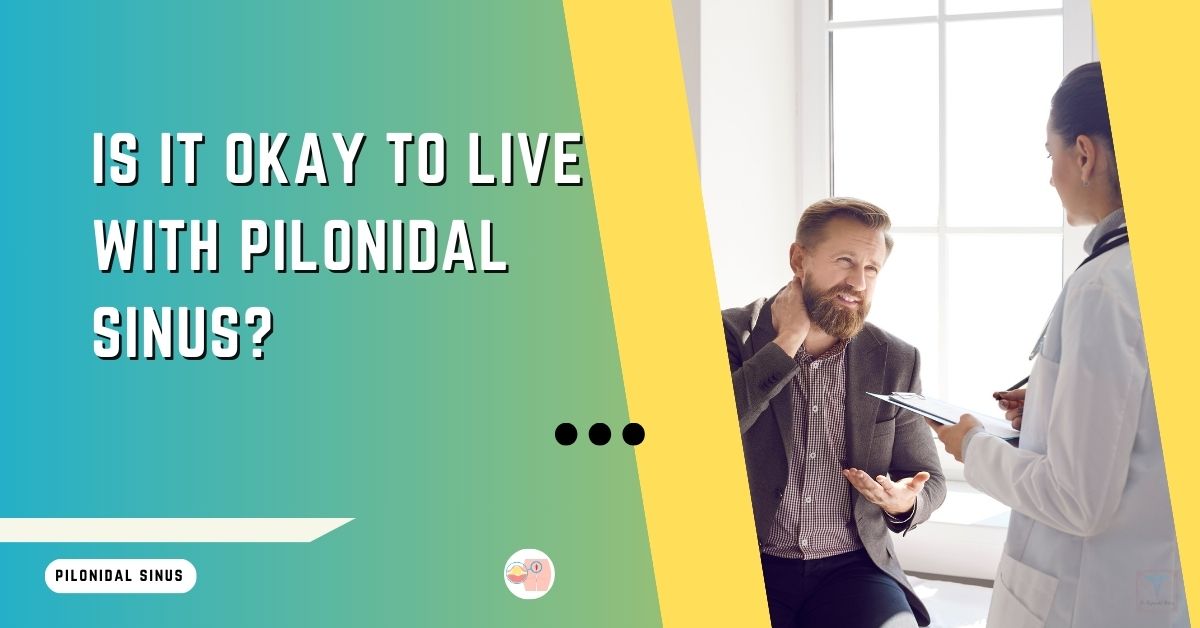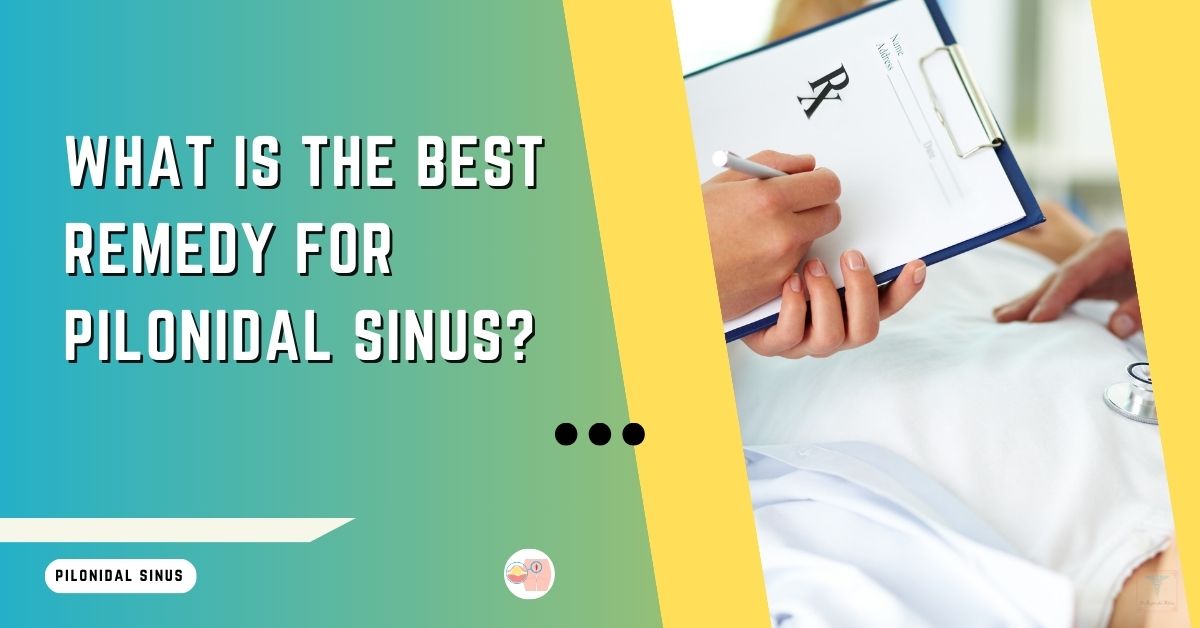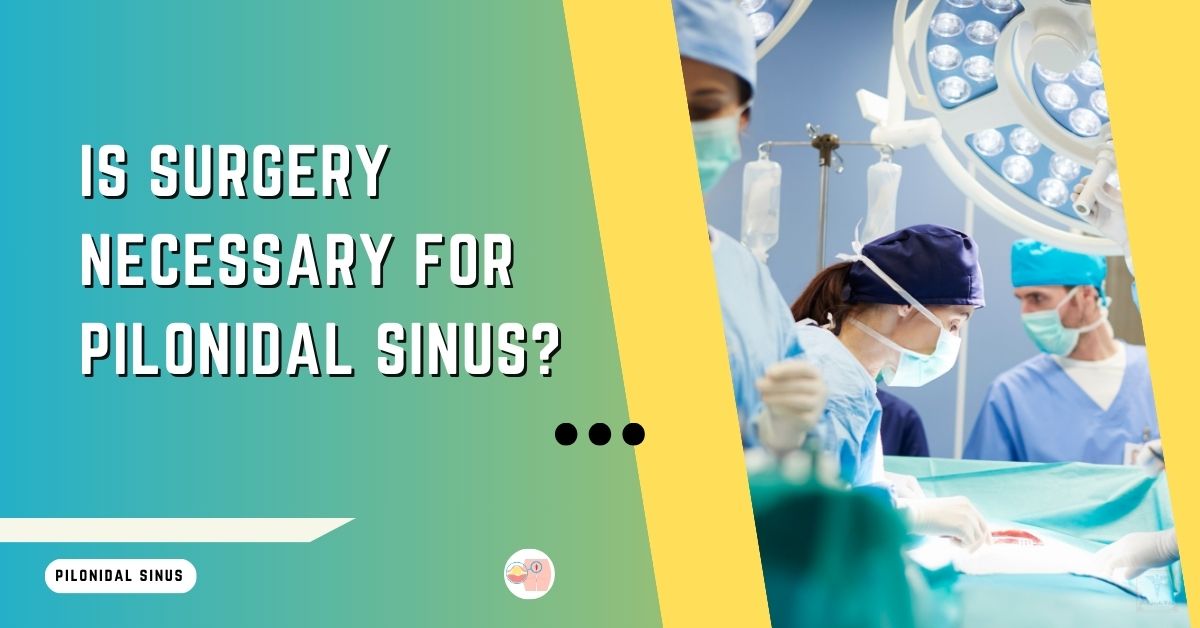A pilonidal sinus is a chronic condition that often worsens over time. While minor symptoms may seem manageable initially, allowing it to progress untreated can seriously impact the quality of life. Expert care is recommended for proper healing and prevention of complications.
Living with Recurrent Symptoms:
– The pilonidal cavity recurs when left untreated, leading to repeated pain and drainage. Flare-ups are common with activities like prolonged sitting, exercise, or irritation from shaving. Acute infection causes fever and illness.
– The constant dampness, foul odor, and need to wear pads can be socially isolating and embarrassing. Maintaining personal hygiene gets challenging. Repeated antibiotics provide only temporary relief.
– Draining abscesses is crucial for symptom control but does not address the underlying tracts burrowed deep in the tissue. Sinus cavities persist and refill with fluid. Healing is difficult.
– Work and school absences due to illness reduce productivity and academic performance. Relationships and social life suffer from the physical and emotional burden.
– Normal everyday activities become increasingly painful whether it is sitting, walking, exercising, or maintaining proper hygiene. Lifestyle is significantly limited.
Risks of Untreated Disease Progression:
– Pilonidal sinus tracts progressively expand, destroy tissue integrity, and lead to extensive scarring. Greater surgical resection is ultimately required.
– Chronic inflammation impedes wound healing after drainage procedures. Open wounds may persist for months, not responding well to antibiotics.
– Bacteria can spread through blood vessels causing a life-threatening systemic infection called sepsis. Urgent care is needed to avoid complications.
– In rare cases, recurrent chronic infection triggers certain skin cancers like squamous cell carcinoma. Early detection and treatment are key to better prognosis.
– Other issues like pilonidal abscess rupture, osteomyelitis of the tailbone, and spinal cord compression have been reported in some neglected cases.
Benefits of Definitive Treatment:
– Draining the abscess temporarily reduces inflammation but complete excision of tracts is needed for long-term cure.
– Advanced flap procedures help extensively diseased tissue heal by removing the sinus, flattening the cleft, and reconstructing the area.
– Post-surgery recuperation takes several weeks but nearly all patients experience complete resolution of this chronic condition.
– Can resume normal activities without pain or drainage once healed. Greatly improves quality of life.
– Reduced risk of recurrences, infections, scars, wound healing problems, and other medical complications.
– Peace of mind and emotional well-being knowing this problematic issue has been surgically eliminated.
Summary of Key Points:
– Living with pilonidal sinus leads to worsening and debilitating symptoms affecting work, school, and lifestyle.
– It can progress to life-threatening infections, poor wound healing, and rare cancers if neglected.
– Temporary drainage procedures do not address the underlying tracts which persist and recur.
– Definitive surgery removes all diseased tissue allowing long-term healing and low recurrence rates.
– Timely expert treatment is crucial to minimize complications and improve quality of life and overall health.
In conclusion, pilonidal sinus requires appropriate diagnosis and management for optimal outcomes. Relying on home remedies or partial treatments risks many problems in the long run. Surgery combined with lifestyle measures provides the best solution.



















